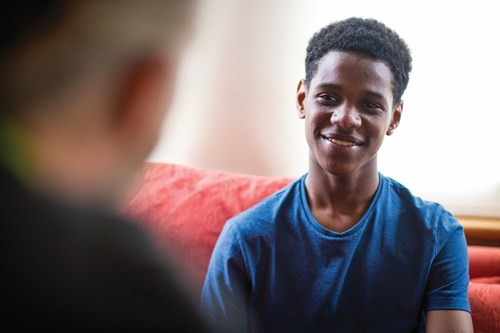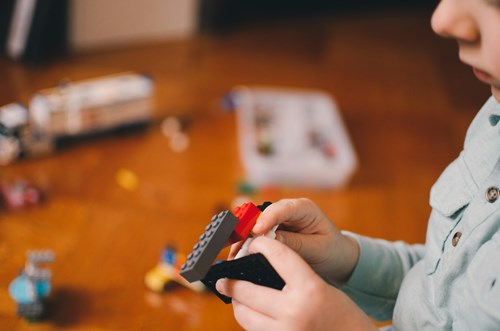What Does Grief Look Like in Children and Young People?
The grief that children and young people feel in response to loss may manifest itself in different ways. No two children or young people, as with adults, will respond to loss and bereavement in the same way.
All children and young people will feel loss, but it will look different according to these ages and stages: a baby and toddler will experience it as separation from their caregiver, whilst a 3–5-year-old will begin to ask questions to try and understand what is happening and think that the deceased person will come back. As children get older, they may sometimes want things to be normal and at others want their losses to be acknowledged and to be helped.

Children and young people can’t sustain grieving like adults do – they must have a break from it and so ‘puddle jump’ – go in and out of grief much more quickly than adults. This is why you will see a young child sad one moment and engaged in play the next.
Their response will also vary according to the relationship they had with the person or thing in question, the nature of the loss, their own previous experiences of loss, their emotional reserves and their support networks.

Children may feel overwhelmed by the emotions and feelings they have and need support to cope with and understand them. Whilst grief can bring various emotions to the forefront such as sadness, guilt, and anger, it is also recognised that it can impact cognitively, behaviourally and physically:
Emotional responses
- Shock
- Denial
- Anger and frustration towards themselves or others
- Guilt that they didn’t spend more time with the person who has died/who they don’t see anymore
- Depression
Cognitive responses
- Anxiousness at the uncertainty around them
- Impaired decision-making
- Struggle to complete everyday tasks
- Lack of concentration
Physical responses
- Exhaustion
- Regression in speech or toilet training
- Illness, real or somatic (when unexpressed emotions lead to physical discomfort)
Behavioural responses
- Sleep patterns
- Lack of control over emotions
- Appetite and eating
- Withdrawal from social and education circles
- Feeling a sense of responsibility for the adults around them
- Appearing not to react to the circumstances
- Increased screen time and engagement on social media
- Bargaining (‘If mummy comes back, I’ll be good’)
- Engaging in risk taking behaviours at home, education or in the wider community
Published: July 2024